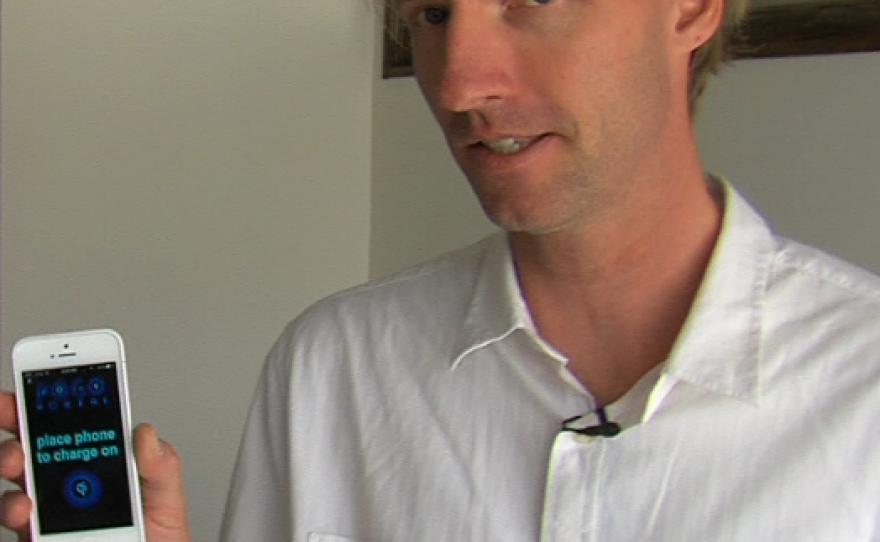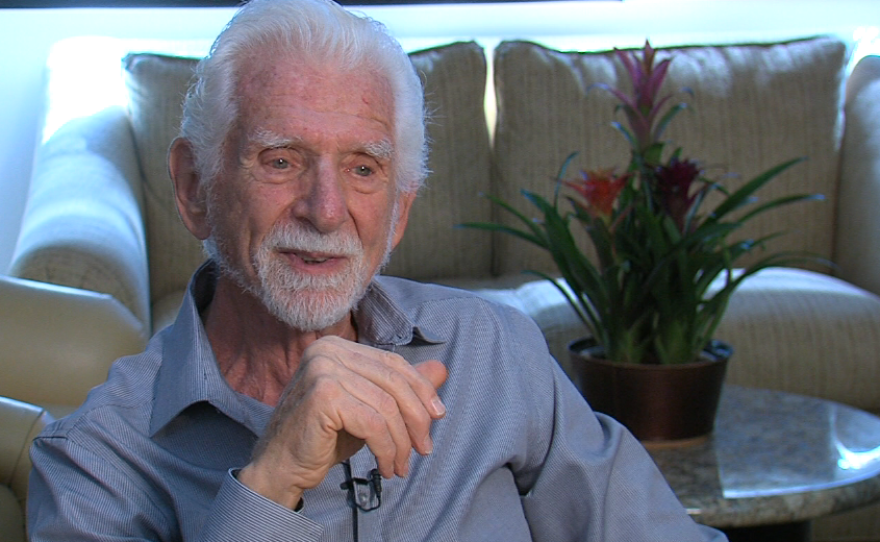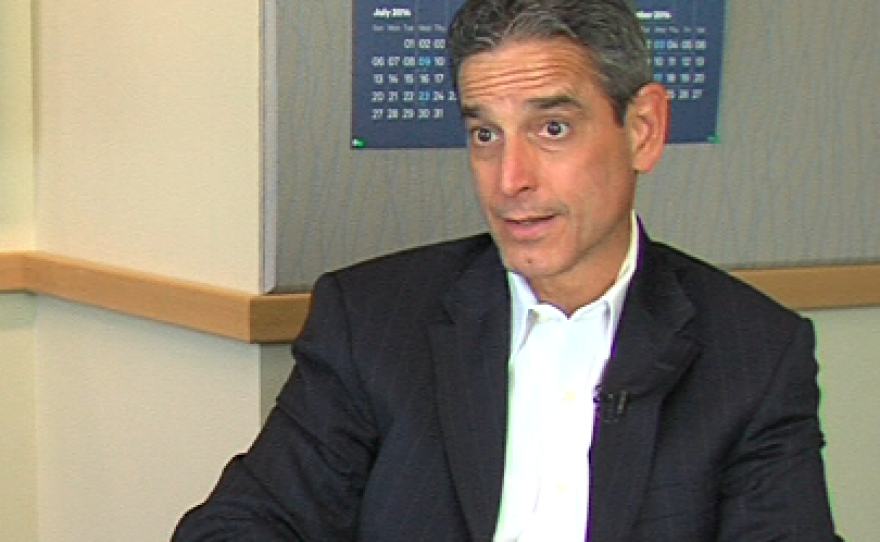How many times have you walked out your front door only to realize that your cell phone — that precious personal assistant you consult with more than 100 times per day — is moments away from dying? The feeling you get in that moment actually has a name: "battery anxiety." And wireless companies hope to soon make it a thing of the past.
"Look at a Star Trek episode," suggests Mark Hunsicker, senior director of product management at Qualcomm. "You never see anyone turning around looking for an outlet. You got the tricorder, you got the communicators and they just work. That's really the type of experience we want to show to the world."
Qualcomm is just one of the industry giants betting big on wireless charging technology. According to these companies' most optimistic predictions, the cord-free future will be a place where cell phone juice flows freely wherever consumers go. Worrying about battery life will seem as old-fashioned as churning one's own butter.
But in order to bring out the full potential in wireless charging, industry giants will have to put aside significant differences they have over this emerging technology. There's more than one way to do wireless charging. And in the last few years a number of industry groups have formed to promote their own pet wireless charging standard. Getting all these industry groups behind a universal standard is proving to be easier said than done.
From a historical perspective, charging has always been a thorny problem for cell phone companies. When Martin Cooper made the first public cell phone call in 1973, it took 16 hours to charge his brick of a phone fully. Even then, Cooper only got 20 minutes of talk time.
"We didn't have the technology to charge them quickly," Cooper said. "If you charged them too fast, they'd explode."
The wireless communication pioneer lives in Del Mar now, and he's seen cell phones come a long way. But he admits charging is still a total pain. To prove his point, he shows me his impressive collection of obsolete chargers, dumping dozens of different charging port standards onto a conference table.
All these chargers could soon become museum pieces, if wireless charging advocates prove to be right. They could be replaced by charging surfaces embedded in our nightstands, desks, cars, favorite cafes and other frequent haunts.

The tangle of incompatible chargers in Cooper's collection won't work for wireless charging. To really do away with battery anxiety, the technology will have to be ubiquitous and standardized, working for every phone in every situation. The industry hasn't figured out how to do that yet.
But they have figured out how to form industry groups that each back a different standard. In one camp, you've got a bunch of automakers wanting a certain standard inside their cars. In another, you've got Starbucks planning to put a different standard in their cafes. In yet a third camp, industry heavyweights like Qualcomm are still working to improve their own technology before going to market.
Caught in the middle of all this is Soren Nielsen, the CEO and founder of a small San Diego startup called Devant Technologies. He's trying to get wireless charging pads installed in businesses like restaurants, cafes, hotels…
"Nightclubs," he said, are another prime location. "End of the day, you really want to stay connected to your friends."
But small startups need support. So Nielsen joined forces with an industry group that backs a specific kind of wireless charging technology called Qi, pronounced "chee."
Qualcomm actually belongs to all three major industry groups now. They joined the group Nielsen is part of a few weeks ago, aiming to be a grand unifier of sorts. They still think the Qi wireless charging pads currently on the market aren't quite ready for primetime.

The Qi pad Nielsen showed me worked well enough. I had to slip my iPhone into a special case for it to pick up a charge. But other than that, the Qi standard did what it was supposed to do. And it's already on the market, an obvious plus.
But Qualcomm's prototype did work a little better. It could charge multiple devices at the same time, and my phone didn't need to be directly on top of the surface to charge.
These differences aside, Martin Cooper hopes the industry settles on a universal standard soon.
"The more you have to think about it, the worse technology is," he said. "So if you have two standards, and you have to remember to switch between one and the other, that makes no sense."
Cooper tried out wireless charging for himself not too long ago, with little success. It turns out he wasn't placing the pad right-side-up, an easy mistake to make. He knows wireless charging is the future. But for now, he's back to plugging his phone in each night.






